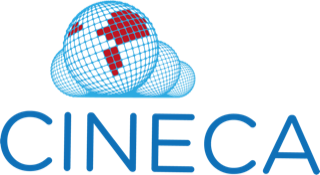Date: 9th February 2023
Time: 15:00-16:00 CET
Slides: The case of data reuse: ethical, legal and societal issues in international genomic data access and sharing
Contact: Marta Lloret Llinares, Mamana Mbiyavanga
Overview
Health data collected in cohort studies are valuable sources for knowledge generation and the advance of biomedical research. However, the use of these data for research projects beyond the initial purpose raises several ethical, legal, and societal questions regarding the sensitivity of genomic data sourced from vulnerable and ethnic groups, such as African genetic data and material.
The webinar addresses these challenges regarding reuse of health/genomic data in CINECA from the ELSI perspective and FAIR principles, and highlights GDPR provisions and their institutional sources of interpretation, national laws, the corresponding legal, ethical, and social science literature, as well as outcomes from stakeholder engagement workshops with patient representatives, African researchers, and CINECA technical experts. The webinar provides ethical and legal recommendations that take societal implications into account for data access to European, Canadian, and African cohorts and responsible sharing mainly on four key areas: (1) Engagement and benefit sharing as prerequisites for data sharing, (2) Informed consent and reuse of data, (3) Safeguards and respect for privacy, and (4) Further uses and data-access. The webinar concludes with an outlook on upcoming ELSI developments regarding data reuse, synthetic data, and artificial intelligence (AI).
Format
Public webinar
About the speakers
Dr. Melanie Goisauf is a social scientist and holds a doctorate (with honors) in Sociology from the University of Vienna. She also studied at the Royal Holloway University of London and is a graduate of the postgraduate program "Sociology of Social Practices" of the Institute for Advanced Studies (IHS) Vienna. Her dissertation was awarded the prize for best thesis in 2017 by the research network “Gender and Agency” of the University of Vienna. Since 2008 she works as a lecturer at the Department of Science and Technology Studies and the Institute of Sociology of the University of Vienna, and at University of Malta. Currently, she is senior scientist at the European Infrastructure for Biobanking (BBMRI-ERIC). Her research focus is on ELSI issues of biobanking, in particular on governance and stakeholder engagement, as well as gender, knowledge production and artificial intelligence.
Emmanuelle Rial-Sebbag, Lawyer, Graduate in health law (Faculty Bordeaux), Ph.D in Health Law (University Paul Sabatier Toulouse). She is Director of Research (Inserm) in health law and bioethics. She is the leader of a multidisciplinary team, BIOETHICS (BIOethics Exploring Trajectories of Health Innovations Challenging Society), at the Inserm/Paul Sabatier University CERPOP Unit in Toulouse (Centre for Epidemiology and Research in POPulation health). She is an Associate lecturer in bio-law and bioethics at the University of Medicine in Toulouse (Purpan). She is currently developing research on the Governance of Research in biotechnology and the role played by regulations at national, European and international level (Genetic testing, Genomic and Health Data protection, Biobanks, Stem cells, epigenetics…).
About CINECA
The CINECA (Common Infrastructure for National Cohorts in Europe, Canada, and Africa) project aims to develop a federated cloud enabled infrastructure to make population scale genomic and biomolecular data accessible across international borders, to accelerate research, and improve the health of individuals across continents. CINECA will leverage international investment in human cohort studies from Europe, Canada, and Africa to deliver a paradigm shift of federated research and clinical applications. The CINECA consortium will create one of the largest cross-continental implementations of human genetic and phenotypic data federation and interoperability with a focus on common (complex) disease, one of the world’s most significant health burdens. CINECA has assembled a virtual cohort of 1.4M individuals from population, longitudinal and disease studies. Federated analyses will deliver new scientific knowledge, harmonisation strategies and the necessary ELSI framework supporting data exchange across legal jurisdictions enabling federated analyses in the cloud. CINECA will provide a template to achieve virtual longitudinal and disease specific cohorts of millions of samples, to advance benefits to patients. It will leverage partner membership of standards and infrastructures like the Global Alliance for Global Health, BBMRI, ELIXIR, and EOSC driving the state of the art in standards development, technical implementation and FAIR data.



